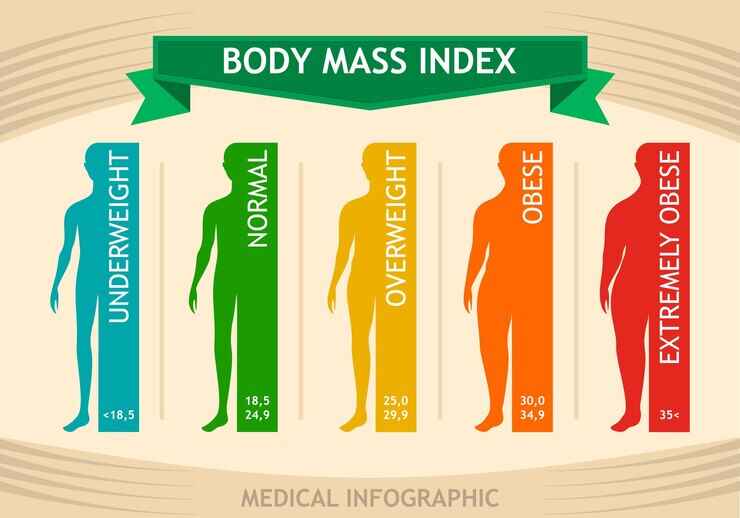Calculate your body mass index (BMI) for adults | BMI Calculator

Calculate your body mass index (BMI) for adults
Hello, health enthusiasts! Are you looking to get a quick run-down on what Body Mass Index (BMI) is all about and how you can calculate it for yourself? Well, buckle up because you’re in for a comprehensive guide that will not only elucidate this widely used health metric but also walk you through the steps to determine yours, covering the factors that could affect its interpretation, right through to understanding what you can do to manage your BMI effectively.
Introduction to Body Mass Index (BMI)
What Exactly is BMI, Anyway?
BMI stands for Body Mass Index, a handy little figure intended to categorize individuals based on their body fat, according to the height and weight of an adult. Knowing your BMI is like having a snapshot of your general health, providing insights that can help you navigate towards a healthier lifestyle.
Why Bother Knowing Your BMI?
Understanding your BMI can act as a wake-up call or provide reassurance. It nudges people who might need to adopt healthier habits or consult healthcare professionals about their weight status and associated health risks.
Understanding BMI Categories
When you crunch those BMI numbers, they’ll place you in one of four main categories: Underweight, Normal weight, Overweight, or Obesity. Each tells a story about your body, but remember, it’s all about striking a balance. Being too light or too heavy can carry health risks.
How to Calculate BMI
Breaking Down the Formula
Calculating BMI is simpler than baking a pie. Just divide your weight in kilograms by your height in meters squared (BMI = kg/m^2). Can’t visualize it? Don’t worry; we’ll explore some examples soon to clear the fog.
Step-By-Step Examples
Imagine Joe, who weighs 70kg and is 1.75m tall. Using our formula, his BMI would be 22.86, placing him in the ‘Normal weight’ category. Simple, isn’t it?
Factors Affecting BMI Interpretation
Why One Size Doesn’t Fit All
Factors like age, gender, muscle mass, and ethnicity can skew BMI’s ability to accurately represent someone’s health status. That’s why it’s crucial to consider these elements when interpreting your BMI.
Limitations of BMI
Not a Be-All and End-All Measure
Let’s not put all our eggs in one basket. BMI, while useful, isn’t foolproof. It doesn’t distinguish between muscle and fat mass, meaning some might be incorrectly labeled as overweight or underweight.
Improving Your BMI
Roadmap to a Healthier You
Improving your BMI often means shifting towards healthier eating habits, consistent physical activity, and sometimes, seeking a bit of professional guidance. It’s about small, achievable changes that can lead to significant transformations.
Technological Aids
There’s an App for That
In the digital age, numerous apps and online tools can help track and calculate your BMI, making it easier than ever to stay informed about your health.
Using BMI Wisely
A Tool, Not a Judge
BMI is a fantastic tool for gauging where you stand health-wise but remember to use it as part of a broader health assessment, alongside other metrics and professional advice.
FAQs
- Can athletes rely on BMI for an accurate health assessment?
- Due to their higher muscle mass, athletes might find BMI less accurate. It’s important they consult healthcare providers for comprehensive assessments.
- Why can BMI be misleading for seniors?
- As people age, muscle mass tends to decrease, which could affect BMI calculations by categorizing them incorrectly.
- Is it possible to have a ‘normal’ BMI but still be unhealthy?
- Absolutely. A ‘normal’ BMI doesn’t exempt anyone from diseases like hypertension or diabetes, hence the importance of a holistic health approach.
- Can my BMI affect my insurance rates?
- Some insurance companies might use BMI as one among many factors to determine premiums, underlining its significance.
- How often should I check my BMI?
- There’s no hard and fast rule, but checking every few months can give you a good indication of any significant health trajectory changes.
Conclusion
There you have it! A deep dive into understanding, calculating, and interpreting your Body Mass Index. Remember, BMI is just one chapter in the large book of your health story. It’s crucial to use it as a guide rather than a definitive judgment of your health. Focusing on a balanced diet, regular exercise, and consulting healthcare professionals when necessary can help you navigate towards a healthier life, regardless of what the scale or your BMI tells you. Stay informed, stay healthy!